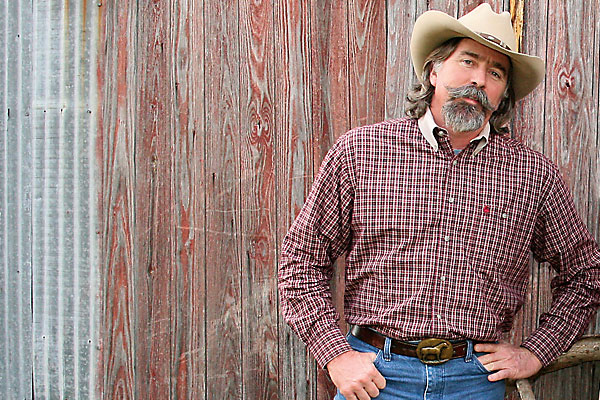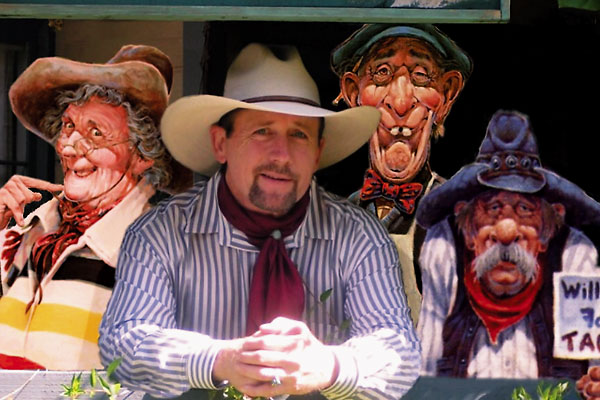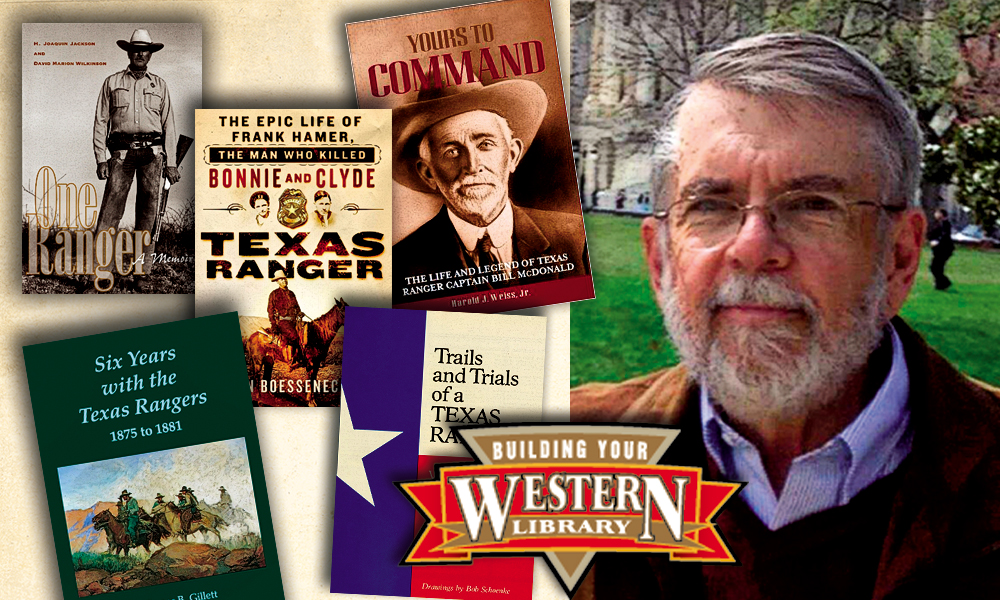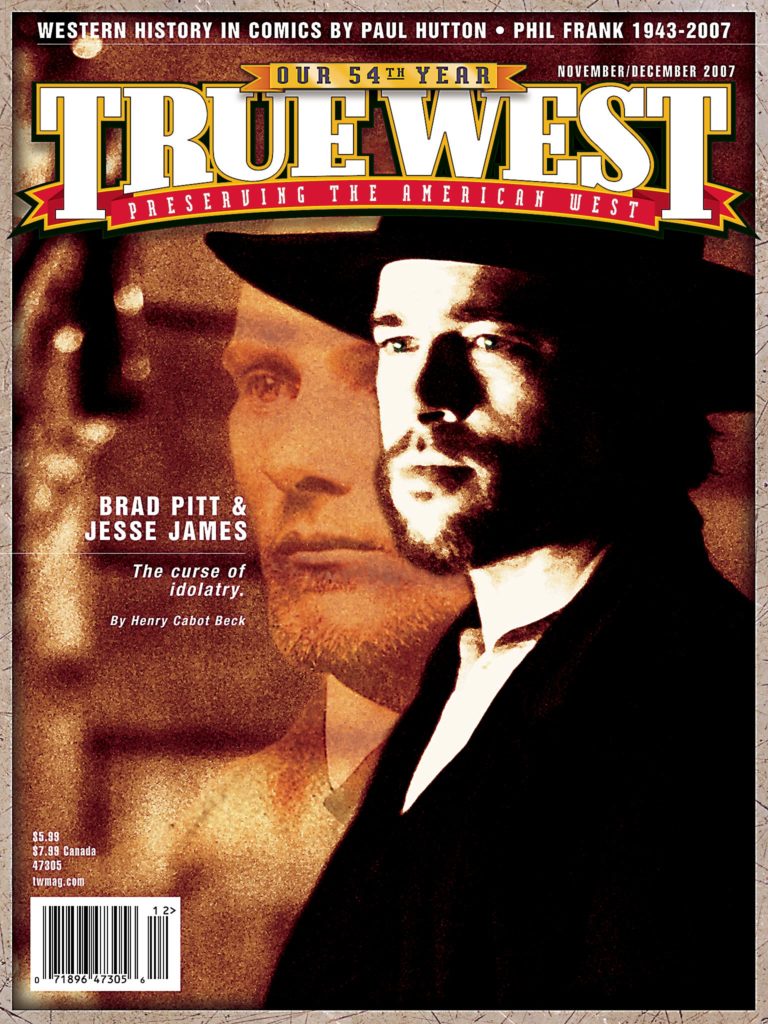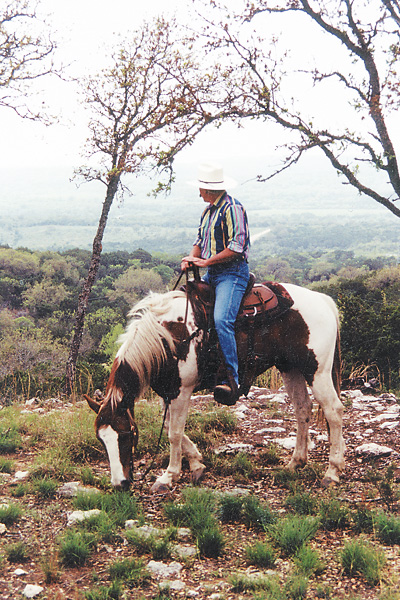 Roping, riding and writing—that’s a typical day for Mike Blakely, one of the fastest rising stars in Western fiction. Lately the fourth “R,” research, takes up much of Blakely’s time as he gets the facts of the Civil War battle of Valverde, New Mexico absolutely correct.
Roping, riding and writing—that’s a typical day for Mike Blakely, one of the fastest rising stars in Western fiction. Lately the fourth “R,” research, takes up much of Blakely’s time as he gets the facts of the Civil War battle of Valverde, New Mexico absolutely correct.
“Colonel Henry Hopkins Sibley planned to conquer the New Mexico Territory and then move on and take over California with an army armed with pistols and shotguns,” Blakely explained during a recent interview. “When they got to Valverde they were pinned down by the Yankees, who had rifles. Finally the Confederates just decided, ‘We’ll do it with shotguns,’ and charged, and the Yankees ran.”
Valverde and the turbulent years following the Civil War in New Mexico and Texas will be the setting of Blakely’s new novel, which continues the story of his fictional hero Honore´ Greenwood or “Plenty Man” (as he was known among the Comanches). Every detail of this saga has to be historically correct or there’ll be trouble a brewin’.
“Get your facts straight or get used to seeing a lot of angry mail,” Blakely said. He learned that lesson after he got his journalism degree from the University of Texas and syndicated a column on Texas history, “Lone Star Legacy,” to about 50 newspapers.
The long hours of checking and double-checking his facts in the UT Austin library had a lasting effect on Blakely’s career.
“All that research really paid off. The column actually produced a lot of ideas for fiction. I turned some of that into my first novel, Glory Trail. I found that I had ‘writer’s block’ only when I hadn’t done enough research.”
Critical acclaim and healthy sales led to more novels by Blakely. He became president of Western Writers of America and in 2001 won the Best Western Novel Spur Award for Summer of Pearls.
Blakely stayed on a roll with Moon Medicine, the first in his Honore´ Greenwood/Plenty Man saga, which is set in old New Mexico and the Texas Panhandle.
“It’s about a clash of cultures—Kit Carson, the Bent Brothers, the trapper-traders. They moved among the Mexicans, the Indian tribes and the Americans. Some of them could speak as many as seven European and Indian languages,” Blakely said.
It took more than that to stay alive on the frontier.
“They survived by being incredibly careful. Kit Carson would climb a tree or get on top of a hill and just watch the land for two hours before starting his fire. Then he started a little fire, just big enough to warm up his coffee and his dinner. Then he moved three miles away to make camp and bed down.”
Research has brought Blakely close to the Indians. He has visited their homes and attended tribal powwows, listening to their history and legends.
Blakely observed that, “The Indians loved rough practical joking. Putting someone in a situation where he could get hurt—getting someone lost in a snowstorm for two days or ambushed—things like that struck them as pretty funny.”
Even as he is carving out an enviable reputation as a major Western novelist, Blakely is pursuing a parallel career as a singer-songwriter, performing with a band called Mike Blakely
y Los Yahoos.
Blakely made his mark playing authentic cowboy tunes and composing new ones in the spirit of the true West. One of his songs, “Seguro Que Hell Yes!” was the lead single on the 1994 Grammy Award-winning album Flaco Jimenez. Blakely’s CD Ride the River won Album of the Year honors at the Hill Country Music Awards. A third Blakely CD, In the Dust, is in the works.
Blakely notes, by the way, that the singing cowboy is not a Hollywood invention.
“Singing cowboys existed!” he said. “Some of them were drifters, most with a fiddle and some with a rugged little Mexican guitar with a neck like a two-by-four.
“One of the most famous was Chaulkley Beesom from Colorado. He’d be called on from as far as 50 miles around to perform. He was also a renowned frontiersman and scouted with Buffalo Bill.”
Like Beesom, as a troubadour and as a storyteller with a profound respect for historical accuracy, Blakely is blazing new trails in the Old Frontier.
Brian J. Murphy is an author, historian, media critic and publisher. He is currently working on a Civil War novel.


